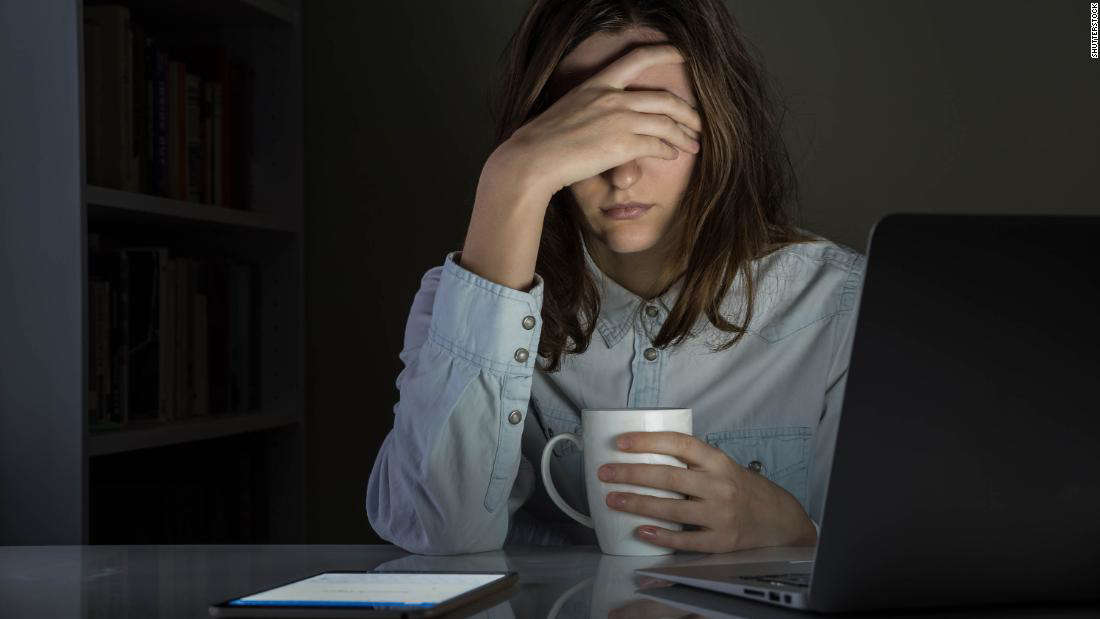Recovering from a Lack of Sleep Takes Longer Than You Might Think, Study Says

Yawning and exhausted from another night of little sleep? Congratulations, you have joined the multitude of people around the globe who suffer from sleep deprivation, a serious problem that can affect your mental and physical health.
Sleep problems constitute a "global epidemic that threatens health and quality of life for up to 45% of the world's population," according to World Sleep Day statistics.
But it's easy to recover from that sleep deficit, right, especially if you're young? A good night's sleep or two -- and certainly a full week of sleep -- and you're back to your fully functioning self?
Unfortunately, a recent new study revealed that may not be the case, even for younger people. Thirteen people in their 20s who slept 30% less than they needed for 10 nights had not fully recovered most of their cognitive processing after seven nights of unrestricted sleep to recover.
"This is a well done, albeit small, study with multiple measures to examine the impact of partial sleep deprivation -- mainly examining sleep duration using wrist actigraphy, EEG changes and cognitive performance," said Dr. Bhanu Prakash Kolla, a sleep medicine specialist in the Center for Sleep Medicine at the Mayo Clinic in Rochester, Minnesota, who was not involved in the study.
"Reaction times improved over seven days and returned to baseline levels while other cognitive tasks including accuracy did not completely recover," Kolla said.
"What the study showed is that there are things like memory and mental processing speed that will not be restored that quickly," said sleep specialist Dr. Raj Dasgupta, an assistant professor of clinical medicine at the Keck School of Medicine at the University of Southern California, who also was not involved in the study.
"Definitely, the major parts of sleep loss can be recuperated, but there are things that you're just not going to get back quickly," Dasgupta said. "That's why it's so important not to have that sleep debt in the first place."
Your brain needs sleep
It may have been a small study, but it echoes results from prior research. A lab-based sleep study found that people who were sleeping fewer than six hours a night for two weeks -- and who thought they were doing just fine -- functioned as badly on cognitive and reflex tests as people who were deprived of any sleep for two full nights.
That's because the brain needs uninterrupted sleep cycles to absorb fresh skills, form key memories, and repair the body from the day's wear and tear. During sleep, your body is literally repairing and restoring itself on a cellular level.
A chronic lack of sleep therefore impacts your ability to pay attention, learn new things, be creative, solve problems and make decisions.
Even skipping sleep for just one night disrupts functioning.
Being awake for just 18 hours can impair your ability to drive as badly as if you had a blood alcohol concentration of 0.05%, according to the US Centers for Disease Control and Prevention. Skip a full 24 hours of sleep, and you'll soon be at 0.10% -- well over the US legal driving limit of 0.08%.
A 2017 study found healthy middle-age adults who slept badly for just one night produced an abundance of the protein beta-amyloid, responsible for the plaques characteristic of Alzheimer's. And a study published in June found that older adults who have significant difficulty falling asleep and who experience frequent night awakenings are at high risk for developing dementia or dying early from any cause.
Depending on our age, we are supposed to get between seven and 10 hours of sleep each night. But 1 in 3 Americans don't get enough sleep, according to the CDC.
In addition, 50 million to 70 million Americans struggle with sleep disorders such as sleep apnea, insomnia and restless leg syndrome, which can ruin a good night's shut-eye.
The CDC calls that a "public health problem," because disrupted sleep is associated with a higher risk of conditions including high blood pressure, weakened immune performance, weight gain, a lack of libido, mood swings, paranoia, depression, and a higher risk of diabetes, stroke, cardiovascular disease, dementia and some cancers.
What to do
How long will it take you to recover from a lack of sleep?
"We do not know that exactly," Kolla said. "This study shows that maybe some tasks, especially in younger patients, can take longer to recover following sleep deprivation."
The key, sleep experts say, is to avoid becoming sleep deprived in the first place.
"We need to prioritize sleep and try and get at least seven hours each night," Kolla said. "When we cannot, making sure that we have some time to recoup and being aware that the sleep deprivation impacts our mood and cognition is important."
You can set yourself up for good sleep by not smoking and keeping alcohol intake to a minimum. Eating a well balanced diet, getting regular exercise, staying mentally active, and keeping your blood pressure and cholesterol levels in check will improve sleep as well.
You can also tackle any sleep problems by training your brain for better sleep. Experts call it "sleep hygiene," and suggest setting a bedtime routine designed to relax and soothe, which includes no TV, smartphone or other blue-light emitting device at least one to two hours before bed.
The post Recovering from a lack of sleep takes longer than you might think, study says appeared first on CNN

